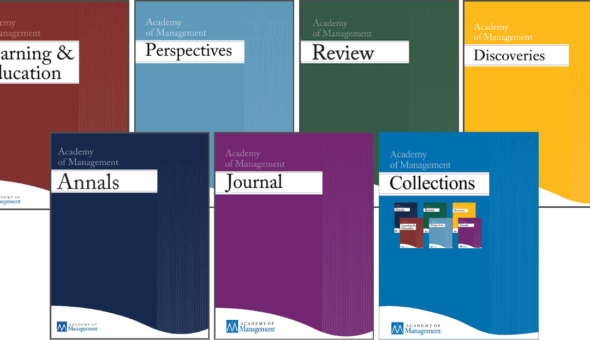It’s that time of year where we all feel ready for a change of scenery. Yet, amidst concerns of the environmental impact of long-haul travel and increasing recognition of the ‘climate crisis’ we live in, is it possible to reconcile our desire to ‘get away from it all’ with our moral conscience? Here Sarah Glozer, Deputy Director of the Centre for Business, Organisations and Society , explores how putting a positive spin on ethical behaviour may bring individual and societal benefits, and asks whether a darker underbelly may exist beneath ‘ethical travel’.
Time to engage the moral conscience?
The perils of ‘over-tourism’ are regularly in the press. Overcrowding, litter-strewn beaches, traffic and escalating airplane emissions are all issues associated with the tourism industry; an industry that is responsible for 5% of global greenhouse gas emissions. As low cost airlines increasingly offer tempting deals, and the population of the planet soars, our incessant demand for experiencing new destinations continues to rise.
Consequently, niche and mainstream ethical tourism operators are now offering tourists more ethically reflective experiences. Whether it be a ‘strictly vegan,’ ‘holistic and wellness’ or a ‘connecting back to nature’ holiday you are after, a whole host of ethical tourist brokers offer consumers the opportunity to limit the negative social, environmental and economic impacts of tourism, and/or promote tourism as a positive force for sustainability. For instance, responsibletravel.com operates under the guise of ‘making tourism a more caring industry,’ stating,
"When we travel we take our holiday in somebody else’s home. Our holidays can impact their environments, cultures, economies and ways of life. Treating local people and places with respect is the right thing to do, and opens up possibilities for more authentic travel."
Such developments go hand-in-hand with the growth of an active civil society infrastructure which includes charities, NGOs and international industry bodies campaigning for change. For instance, in the UK, ‘Tourism Concern’ – a charity that campaigns on issues including animals in tourism and human rights abuses – recently issued a ‘Ethical Travel Guide’ to “…help travellers in making better decisions about where to go, who to go with, where to stay and what to do in accordance with principles of ethical tourism.” Yet, do consumers really care? Are they willing to negate the comforts of cosy luxury travel for more ethically rewarding experiences?
Ethics vs. Enjoyment
A new study by Rob Caruana (University of Nottingham), myself and Giana Eckhardt (Royal Holloway, University of London), published in the Journal of Business Ethics, suggests that tourists may be able to enjoy holidays that both maximise their pursuit of hedonism alongside their desire to be socially and environmentally responsible. Drawing on Kate Soper’s view of ‘alternative hedonism’, we examine narratives from a range of self-declared ‘ethical tourists’ who take active enjoyment from living an ethical lifestyle. Under Soper’s (2008) view, altruistic concern for the ecological and social consequences of consumption can be motivated by self-interest.
Adopting this view, we argue that rather than seeing morality and hedonism in juxtaposition, tourists may achieve personal fulfilment via ‘alternative’ routes where pleasure and morality coincide. This might be akin to feeling the sun on one’s face whilst cycling to work, or enjoying the moral virtues in visiting five farmers' markets to find that one important ingredient, rather than heading straight to the local supermarket. Rather than downshifting, simplifying, restricting and decelerating consumption – a preoccupation of much of the literature, and practice, around ethical consumption – our paper suggests that consumers may be inclined to actively seek more sustainable behaviours. In short, ethical consumption may be enjoyable, rather than restrictive.
In the context of the ‘ethical tourists’ that we interviewed, three ‘self-managing’ strategies came to light that illuminated not only the co-existence of morality and pleasure, but also exactly how tourists alleviated their moral conscience after their holiday experiences. These strategies – ‘moderating’ , ‘abiding’ and ‘levelling’ – revealed how tourists experience pleasure through overcoming a “self-interested disaffection with consumerism” (Soper 2008, p. 567), alongside concerns of overtourism, to create their own interpretations of the ‘good life’. For instance, we found that tourists sought active enjoyment from positioning their ‘ethical’, virtuous selves against other, ‘unethical’ tourists.
So what does this tell us about the tourism ‘market for virtue’?
Our study finds that morality and hedonism are not two separate choices for consumers, but are, in fact, operating in harmonious interaction towards both social and personal ends. Perhaps our findings, then, speak to the appeal of the ‘middle ground’; through ‘alternative’ holidays, consumers are able to indulge in (ethical) travel devoid of guilt. Indeed, rather than indulge in the social and environmental doom and gloom that often surrounds holiday guilt, we might argue that ethical (and mainstream) tourism brokers may attract a broader consumer base through focussing marketing strategies around how ethical experiences appeal to both rational and emotive desires for ethical and fun holidays.
While it’s promising that consumers are actively considering the ethical elements of travel more proactively, the key contribution of our research was in finding that ethical tourism provided a basis for consumer distinction.Through distinguishing themselves from mindless and wasteful consumers, the tourists we interviewed secured their exclusive access to the most untouched, pristine sources of pleasure, such as remote beaches, nature trails ‘off the beaten track’ and unique windows into authentic cultural experiences. This was the ‘alternative hedonistic’ value that resonated most with our interviewees. It was also a value that performed an important role in legitimating and sustaining potential pleasures for our tourists in future holidays.
Yet, having good intentions doesn’t always equate to having no impact. We argue that “ethical” tourists, like any others, need to understand better the wider context of their holidays. Perhaps to further encourage ethical reflection on the behalf of tourists, tourism brokers could provide additional opportunities for interactive (and critical?) dialogues between stakeholders with varying interests within the holiday experience (e.g. host/guest/community/NGOs). Additionally, agents in the ethical tourism industry need to be wary about how terms such as ‘moral’ and/or ‘ethical’ may be (perhaps wrongly) experienced as unambiguously good, with the potentially damaging outcomes of tourism remaining overlooked. At best, such phrases can inspire and motivate; at worst moral discourses may be co-opted to more personal, and potentially egoistic ends.




Incredibly well-written and engaging article. Helped me understand the term "virtue-signalling" from an academic standpoint.